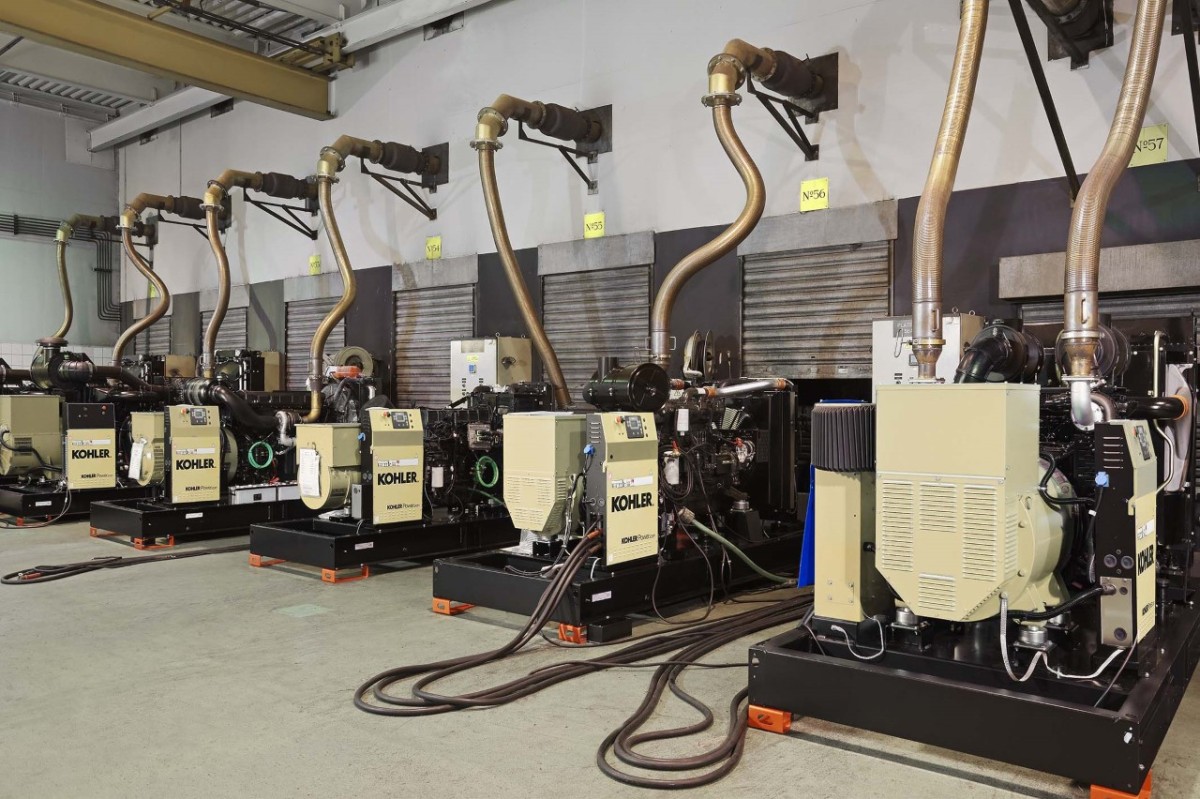Kohler Power Systems' headquarters and manufacturing plant in Brest, France has switched all its fuel usage in diesel engines from conventional fossil diesel to Hydrotreated Vegetable Oil (HVO). While HVO had previously been used at the Brest site for small-scale development testing within the lab, it is now available for all generator testing.
Effective immediately, the change means that 325,000 litres of fossil diesel that were previously burned at the site each year are now replaced with HVO, reducing CO2 emissions by approximately 750 tonnes . Switching from conventional diesel to HVO reduces greenhouse gas emissions by up to 90%, depending on the raw materials used to make the HVO.
“Taking into account all sources of carbon emissions, including lighting and heating, the shift to HVO has enabled the Brest plant to reduce its overall CO2 emissions by up to 50%,” said Lenaik Andrieux, General Manager of Kohler Power Systems, EMEA.
To ensure a reliable source of HVO, Kohler has secured a supply agreement from a major provider, which keeps large amounts of HVO at a local storage depot near the Brest site.
Typical tests at the Kohler site include a generator running for 24 or 72 hours, which uses significant amounts of fuel. In 2023, the shift to HVO on the site should create 78% lower emissions than it would have done using fossil diesel.
As well as reducing emissions balance of CO2, HVO emits less NOx, and fewer particulates than fossil diesel. HVO is also more stable than fossil diesel, which helps Kohler ensure reliable test results, even if fuel has been in a tank for several months.
HVO is a next-generation renewable fuel which has all the advantages of a sustainable fuel source, with none of the disadvantages of first-generation biodiesels. With no sensitivity to oxidation, HVO can be stored long-term. It is up to 90% carbon neutral and sourced entirely from waste products – making it part of a circular economy.
Kohler’s entire range of mission-critical diesel generators is compatible with HVO, and switching from fossil diesel to HVO is quick and easy. No modifications to previously installed generators are required, allowing for the immediate rollout of renewable fuel to customers. The similarity between HVO and fossil diesel further smooths the shift to biofuel, because the two fuels can be mixed directly in the tank without problems. The HVO fuel option supports Kohler’s commitment to our Better Planet strategy within the Believing in Better operating philosophy that focuses on overarching environmental goals.




